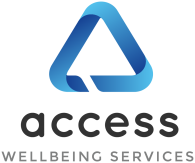
Wellbeing at Work: Worth the Investment
|
Listen to this article
Getting your Trinity Audio player ready...
|
We may have come a fair way in reducing the stigma attached to mental ill-health, however many of us would still sooner tell our boss that we can’t be at work due to a cold or stomach bug rather than admit grief, anxiety or depression. And, it seems, many more will turn up to work anyway.
This is having a significant impact on individuals, organisations, and communities, both psychologically and economically. According to the Productivity Commission Inquiry Report on Mental Health released this week, the cost of presenteeism – that is, the reduced productivity of an employee with mental health challenges when they attend work – is high. They estimate a range of $5.3 billion to $7.0 billion in reduced productivity in 2018-19. The overall economic impact of mental health is between $43 billion and $70 billion, with an additional $151 billion from the cost of disability and premature death. Clearly, mental wellbeing is an issue worth addressing.
What is your organisation doing to not only reduce the cost of mental health, but also reap the benefits of wellbeing? According to report’s findings, the return on investment of workplace wellbeing and mental health initiatives is considerable, ranging from $1-$4 for each dollar invested.
Addressing mental health and supporting wellbeing in the workplace may not be straightforward, but there are a number of things we can do to trend in the right direction. The Wellbeing Lab (AHRI) report The State of Wellbeing in Australian Workplaces, Workplace Wellbeing: HR need to step up explores the nuances of wellbeing at work, and highlights the opportunities for HR teams to foster a healthy workplace where more people can thrive. We’ve outlined some of their key insights below.
Diversity of Wellbeing Initiatives
Wellbeing at work cannot be addressed with one solution and requires a multi-faceted approach at the individual, team, and organisational levels. Employee Assistance Programs are particularly important, as they are aimed at the early identification, management and resolution of a range of issues. EAPs contribute to increased productivity, higher levels of engagement, motivation and staff retention, reduced costs, and fewer workplace accidents. Education and training, awareness programs, conflict resolution, critical incident services, and a psychologically safe culture can all contribute to a healthy and resilient workplace.
Build a culture that accepts and normalises struggle and provides a psychologically safe environment that allows people to speak openly about their wellbeing.
Give workers permission to struggle to enable a culture in which open conversations about wellbeing can occur. Normalising struggle can make it psychologically safer for workers to talk to each other about aspects at work or home that may be undermining their wellbeing. HR teams should encourage and support leaders in creating a psychologically safe environment by encouraging workers and teams to care for each other’s wellbeing. One way to do this is to provide professional development in emotional intelligence, as EQ allows us to notice our triggers, manage our stress, demonstrate empathy, and foster social connections. Exploring upon unwritten ground rules can also have an influence on individual and team behaviours.
Reduce Struggle
Reducing struggle requires awareness and a willingness to ask for help. HR teams and leaders should seek to understand what their people’s challenges are and build their own trustworthiness to effectively act on wellbeing. Do you know what the most common struggles are? What do you do to make it safe for people to turn to you when they are struggling with their wellbeing?
It takes time to cultivate long-term cultural change, but it’s important to make a start, and at the very least, work towards progress. Being proactive and taking small steps to support your people’s wellbeing can have a real impact, now and tomorrow. The cost of not doing this is simply too high.
AWS Professional Development can provide a range of opportunities for education and growth on mental health, emotional intelligence, enhancing communication and building resilience. Contact our Training Services Coordinator to see how we can assist.
For more tips on how to support your people, check out the Tip Sheets on our website. And if you or a team member is struggling with mental ill-health, reach out to our Counselling team here.

